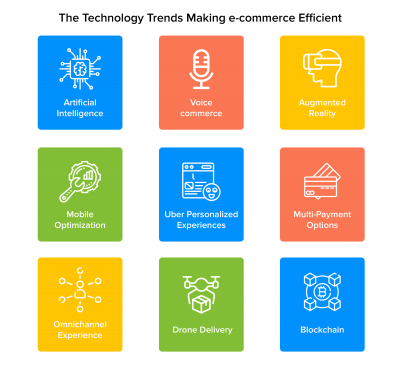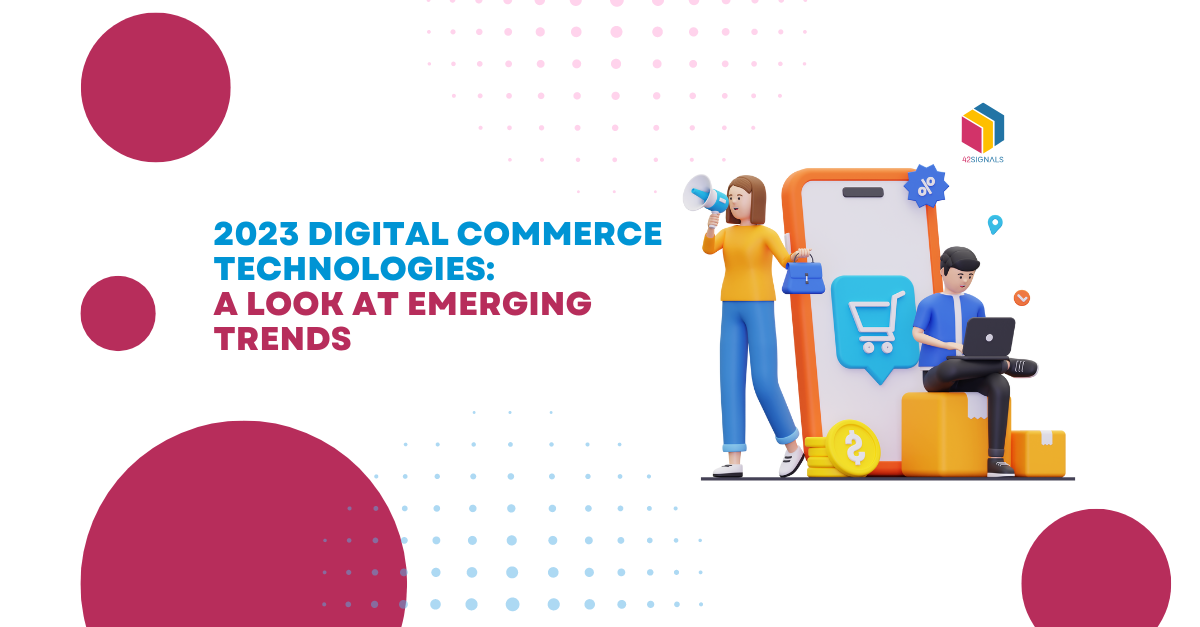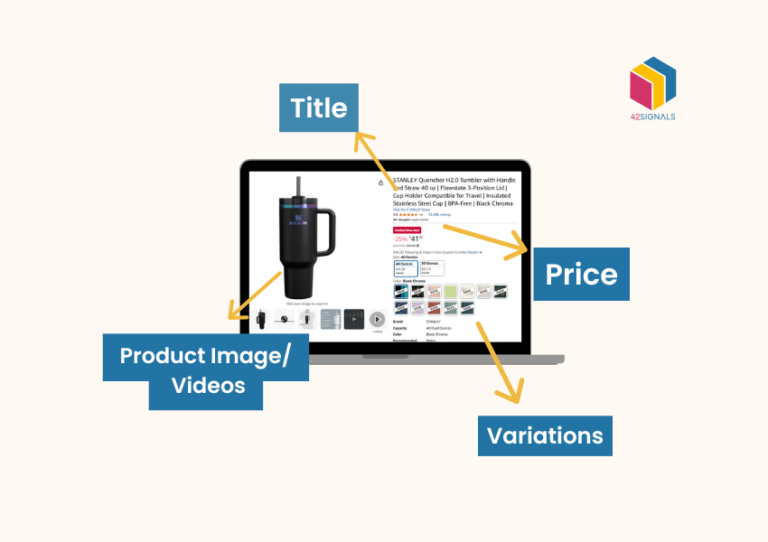Introduction to Digital Commerce Technologies
Digital commerce technologies are reshaping how businesses engage with consumers. From AI-powered personalization to immersive AR shopping experiences, these innovations are revolutionizing the retail space.
Staying updated with these trends isn’t just important; it’s essential for staying competitive. AI’s predictive analytics can offer customers personalized product selections based on their preferences and goals. For e.g., Myntra’s MyFashionGPT, an AI integration on the e-commerce platform recommends customized looks catered to the user’s specific occasion, location, and style preferences.
As consumer expectations continue to rise, digital commerce technologies define the future of commerce. Embracing innovation is crucial for businesses to thrive and connect with customers in a more effective way.
Top 10 Emerging Trends in Digital Commerce Technologies:

Image Source: Nasscom
Enhancing Customer Experiences
By employing customer data and AI-driven recommendations, businesses can craft personalized shopping journeys while seamlessly merging online and offline interactions for cohesive engagement. Seamlessly connecting both these touchpoints further amplifies customer engagement, creating a holistic brand experience that adapts to individual preferences.
AI and Machine Learning in E-commerce Operations
The integration of AI and ML redefines the efficiency of e-commerce operations. These technologies automate supply chain intricacies, ensuring optimal inventory levels and efficient order fulfillment. AI-powered chatbots serve as 24/7 virtual assistants, providing instant customer support and enriching the customer’s shopping interactions.
Augmented Reality (AR) and Virtual Reality (VR) Shopping
AR & VR technologies propel shopping experiences into the world of immersion. Through AR, customers can virtually try on products, bridging the gap between online and in-store shopping. VR, on the other hand, creates captivating environments that transform the act of browsing into an interactive adventure.
Voice Commerce and Conversational Shopping
Voice assistants enable frictionless interactions, allowing customers to make purchases and conduct searches using their natural speech. As voice commerce gains momentum, brands embracing this trend stand to deliver seamless shopping experiences in tune with modern consumers’ wants
Mobile Commerce
The evolution of mobile commerce comes to the forefront through Progressive Web Apps (PWAs). With improved loading times, enhanced user interfaces, and offline access capabilities, PWAs redefine the mobile shopping experience. Push notifications further solidify the connection, enabling businesses to re-engage users seamlessly.
Sustainability and Eco-Friendly E-commerce
Businesses integrate eco-friendly practices into their operations, including the use of green packaging and responsible sourcing. This resonates strongly with consumers who prioritize ethical shopping, creating a positive brand image and a deeper connection with environmentally conscious shoppers.
Subscription Models and Membership Programs
Subscription models and membership programs redefine customer loyalty in the digital age. These offerings provide ongoing value to subscribers while nurturing long-term relationships. With a growth trajectory, subscription-based e-commerce capitalizes on the convenience it brings to customers’ lives.
Social Commerce and Shoppable Content
Social media transforms into a dynamic marketplace through the concept of social commerce. Direct sales through platforms offer a frictionless path to purchase. User-generated content, amplified through social engagement, serves as a powerful driver of conversions. Collaborating with influencers further amplifies brand visibility, leveraging their credibility to enhance consumer trust and boost sales.
Evolving Payment Solutions
Payment solutions evolve alongside consumer preferences, prioritizing convenience and security. Contactless payments and digital wallets offer seamless and hygienic transactions. By ensuring secure and user-friendly payment processes, businesses foster a sense of trust and streamline the purchasing journey.
E-commerce Analytics and Insights

The capabilities of digital commerce technologies such as e-commerce analytics and insight tools let businesses carve out a distinct competitive edge by making informed, data-driven decisions. These tools provide insights that serve as compasses, guiding strategy refinement and facilitating quick adaptations to dynamic market shifts.
Embracing the Technological Shift in E-commerce
Businesses should fully embrace emerging trends, as digital commerce technologies undergo rapid change. The potential of personalization, AI, AR, VR, and more signifies technology’s transformative power. Yet, this is an ongoing journey, demanding constant adaptation in the face of evolving consumer behaviors. By combining commerce with technology, businesses can secure growth and enduring customer relationships in this exciting era of digital commerce.







